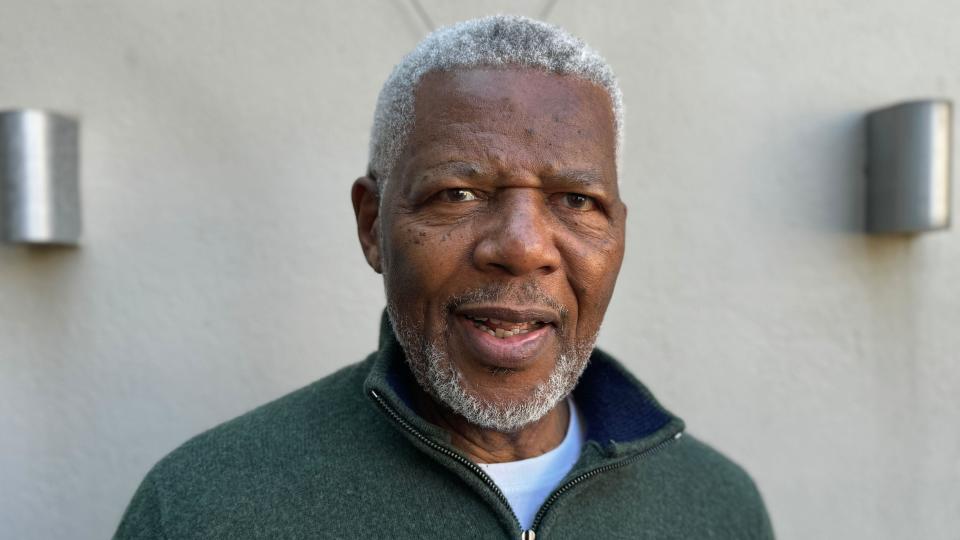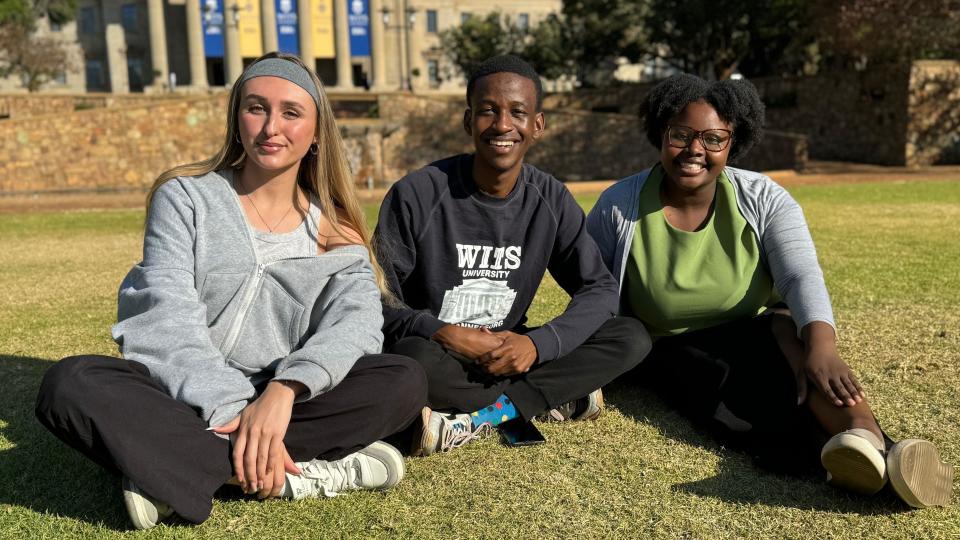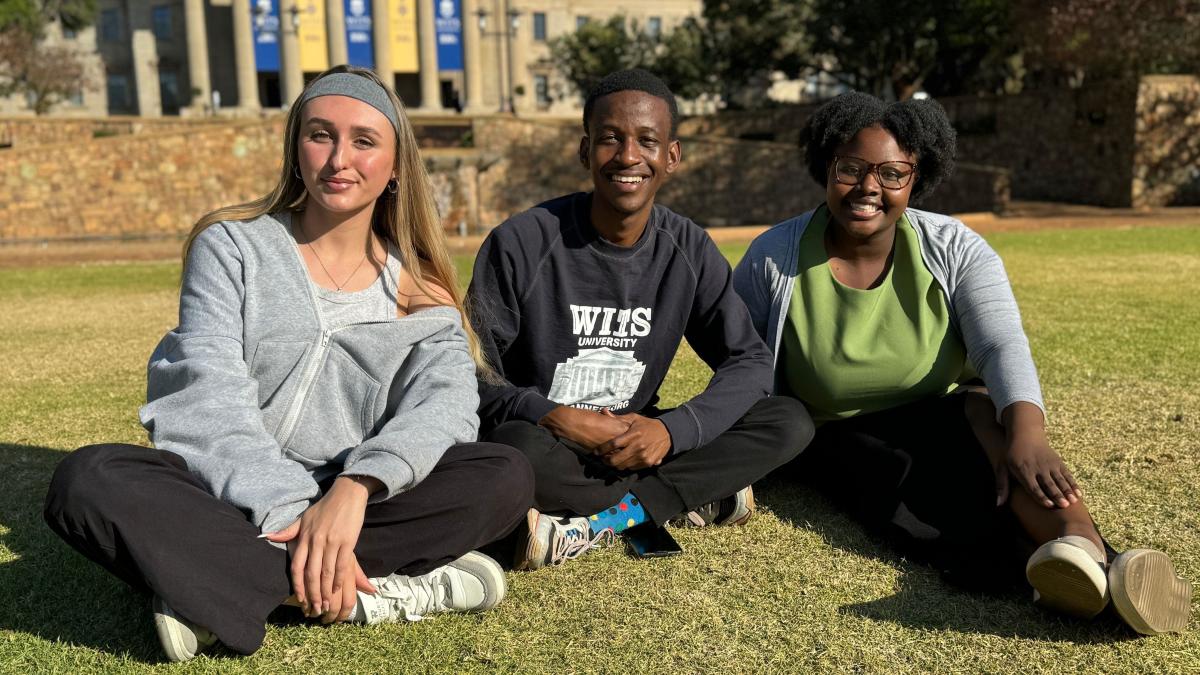Mavuso Msimang read the writing on the wall last year and now the people of South Africa have confirmed what he saw.
The African National Congress (ANC) veteran resigned from the party in December after 66 years, citing endemic corruption and warning the ANC was on the verge of losing power.
The party has lost the position of unrivaled political power it has held since the end of apartheid three decades ago, with a sharp decline in support.
As South Africans come to terms with a pivotal moment in their history, they are looking back at what it means for the former liberation movement, and forward at what it means for the country’s future.
“I think we all agree that it is time for change,” said Lerato Setsiba, a computer science student at the University of Witwatersrand in Johannesburg.
“But I think the majority of people are quite scared right now… we don’t know what’s going to happen.”
Past
Mr Msimang’s home is decorated with tributes to the iconic former ANC leader: a life-size painting of Nelson Mandela, a coffee table book with his name.
Mr Msimang served in the ANC’s armed wing, uMkhonto weSizwe, in the 1960s and was appointed to various government positions after the 1994 elections that brought the movement to power.
He is now vice-president of the ANC Veterans League, which has strongly advocated action against corruption in the party’s ranks.
“There was always a tendency not to address issues of liability,” he says, but the economic mismanagement that resulted “affected people very directly.”
“When I saw those long lines [of voters] which are pretty similar to what happened in 1994, I didn’t think they were lining up to celebrate the ANC. It became very clear to me that something bad is coming.”
“I’m very disappointed,” he told me. “I don’t know how the legacy of the ANC will be recovered. I hope this isn’t forever.”
Many older voters who remember the horrors of apartheid remained loyal to that “liberation legacy” – the ANC’s leading role in overthrowing the white minority government.
They also remember the progressive social welfare policies that elevated millions of black families to the middle class and extended basic services like water, electricity, and social services to millions more.
But the party began to attract people interested in power and political patronage.
Its demise only began in earnest under former President Jacob Zuma, who resigned in disgrace amid accusations that he allowed business associates to infiltrate government ministries. He denies the accusations.
Zuma was replaced by Cyril Ramaphosa, who was accused of not taking strong enough action to root out corruption within the party.
Nevertheless, Mr Msimang has not given up on the ANC. He was convinced by his experienced comrades to rejoin the party.
“I don’t think all is lost. There is time for the ANC to regroup,” Msimang said.
“But the renewal of the ANC would take the form of ensuring that elements that are truly corrupt are removed from the organization. We really have failed to act decisively to do that…we have failed to heed the pleas of the people.”
Nevertheless, Mr Msimang is concerned about the lack of a strong alternative to the party: “There is a fragmentation that will make the country very unstable if it continues.”

Present
At the election results center near Johannesburg, the numbers are displayed on a dashboard that tracks the number of votes.
The gigantic screen towers over a room full of journalists, party officials and analysts such as Susan Booysen. She found a quiet place to talk to me.
The subject is coalition politics, something South Africa has not experienced at a national level for twenty years. Although the ANC is still by far the largest party, it will have to share power to continue to govern.
The political landscape is difficult and full of consequences because the major parties have different visions of the country.
The pro-business Democratic Alliance is not an easy fit because of its free-market agenda and its reputation as a party for the white community and other minority groups.
The next two largest parties are the radical left: Zuma’s new uMkhonto weSizwe (MK) – a name it adopted from the ANC’s paramilitary wing – and the Economic Freedom Fighters (EFF). They talk about confiscating white-owned land and nationalizing mines and banks.
The ANC views the EFF as “too erratic in its orientation, too in your face, and too unreasonable in its policy demands,” Ms Booysen said.
And there is too much “bad blood” between the ANC and the Knesset member who has said he will not work with the ANC as long as Mr Ramaphosa remains its leader.
Removing Mr Ramaphosa is “the MK party’s main goal at this stage, and as far as they are concerned the ANC is collateral damage in that process,” she says.
Zuma’s comeback, despite presiding over more than a decade of rampant corruption, has thrown a wild card into the mix. He stormed into the convention center on Saturday evening to make accusations of election fraud.
The outcome of what is expected to be turbulent coalition talks could decide between two very different directions for South Africa.


The future
On the campus of Wits University in Johannesburg, a group of student actors perform a pop-up parody of the elections.
People turned out in droves to vote here – many of them, like medical student Nobuhle Khumalo, for the first time.
She is excited about change, but doesn’t know what it means: “We’re just going to see what it looks like as it unfolds.”
We are in the grounds in front of the library chatting with two of her friends, Mr. Setsiba and music student Silka Graetz.
They hope that a coalition government will bring greater accountability and transparency, but are wary that this could lead to greater political instability and dysfunction.
“I think the increase in votes with other parties certainly creates healthy competition,” Ms. Graetz said.
“And I think healthy competition comes with better service, just an improvement in so many different areas.”
Young people, many of whom did not experience apartheid, were more willing than their parents to leave the ANC, driven by concerns about their future.
About 45% of South Africa’s youth are unemployed, the highest recorded rate in the world.
“When it’s campaign time, you don’t talk about issues that concern young people,” says Setsiba, who criticizes education cuts in recent years.
“Pour money into universities, stimulate entrepreneurship and make it a thriving country for new companies!”
Ms Graetz warns that it will be important to restore investor confidence in the country to improve the economy.
Both she and Mr. Setsiba are preparing to graduate, so entering the job market is a top priority.
Ms Graetz is well aware that her future will be shaped over the next four or five years, the period before the next elections.
“The only question I have is, ‘How long do we have to wait to see anything [change]?'” she says. “I think there has been a big change in mentality. How long before that is put into practice?”
It took thirty years for the ANC to be held accountable for its failures. South Africa’s younger generation is not willing to wait that long.









